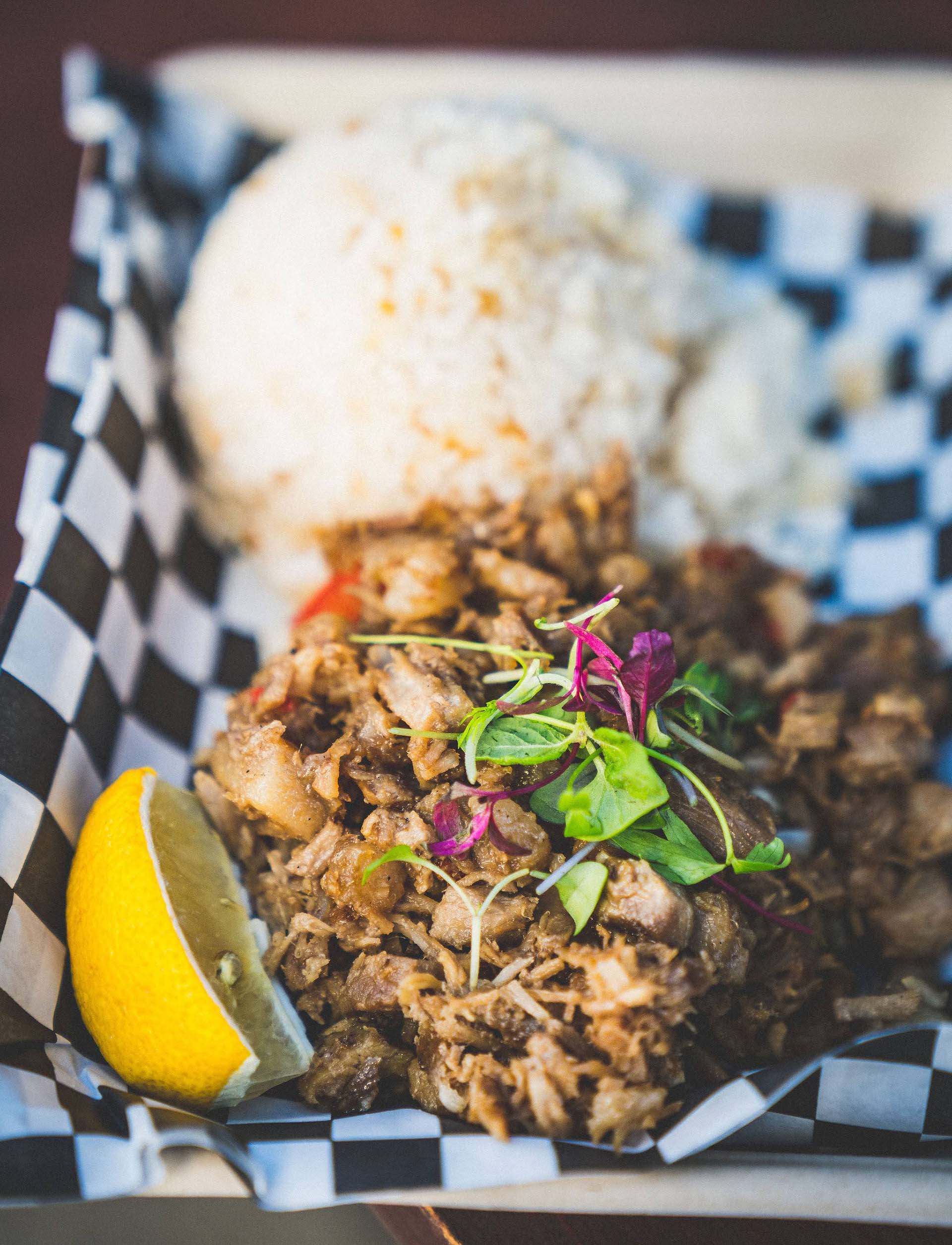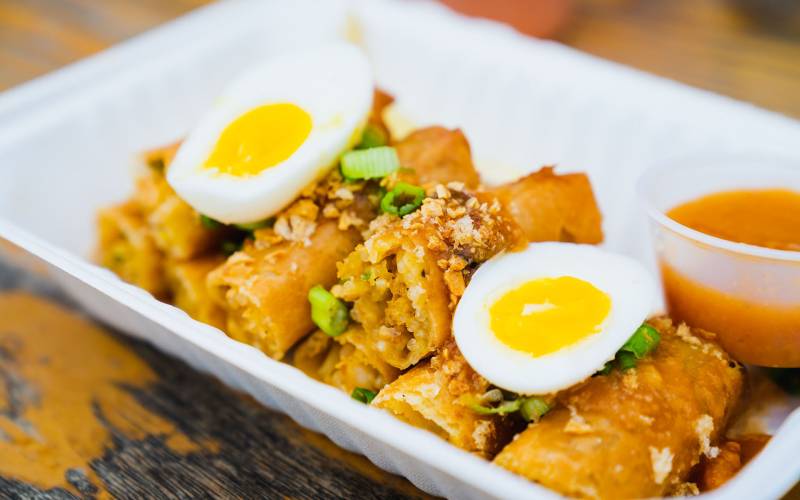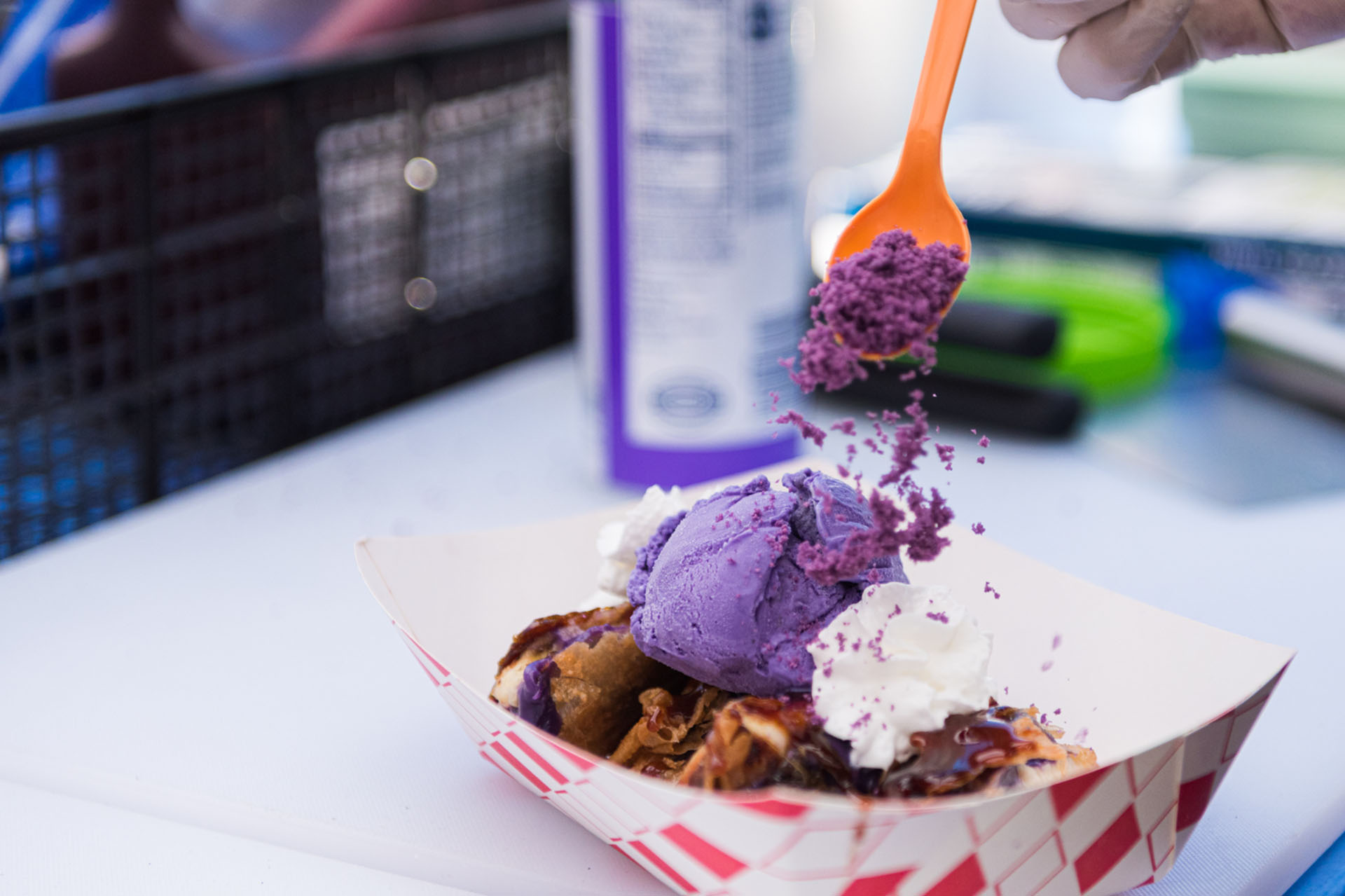You can’t tell the story of Bay Area hip-hop without a tip of the cap to all of the Filipino Americans who helped shape the scene — from the legion of mobile DJ crews and B-boys/B-girls to the influential emcees, producers and graffiti artists. It makes sense, then, that the 2023 edition of Undiscovered SF, San Francisco’s preeminent Filipino American culture fest, is framed as a months-long celebration of hip-hop. This year is hip-hop’s 50th anniversary, after all.
Still, when the block party kicks off in the SoMa Pilipinas cultural district on Aug. 19, one of the biggest draws will be the same thing that attracts a crowd to any big Filipino gathering: the food.
And as Desi Danganan — executive director of Kultivate Labs, the nonprofit that organizes the event — explains it, the Bay Area’s vibrant Fil-Am food scene today is itself deeply rooted in the community’s ties to hip-hop. Back in the ’80s, among Filipino Americans in the Bay, “everyone and their mom was a DJ,” Danganan recalls. Then there was a stretch of time when it seemed like everyone became a club promoter. Danganan remembers when he was in his twenties, the promotion crews running the nightclubs in SoMa were 90% Filipino.
These days? Those same folks are operating some of the region’s most popular food trucks and pop-up restaurants.
“All of a sudden, the new DJ was the chef,” Danganan says. “Chefs started popping up, rave-style, in places that weren’t necessarily kitchens.” He describes something akin to a DJ/dancer/club promoter to chef pipeline: Alex Retodo was a club promoter before he started rolling lumpia at the Lumpia Company, which he co-owns with E-40. Evan Kidera was a rapper before he co-founded Señor Sisig — arguably the single most famous Bay Area food truck. The couple behind Filipino-Japanese pop-up Ox and Tiger were dancers before they were chefs. So were the co-founders of the Chase Center food stall Sarap Shop. And Undiscovered SF booked Rod Reyes, of the San Jose–based food truck Barya Kitchen, as a DJ for one of the festival’s earliest incarnations, before he’d even started his food business.

The kind of trajectory that Danganan describes isn’t uniquely Filipino, of course. Some of it is rooted in the entrepreneurial spirit and hustle culture that undergirds the whole Bay Area hip-hop scene. And if the Bay Area’s Filipino American community produced some of the most legendary DJs in hip-hop history, it’s only natural that that kind of creativity would also translate into other artistic endeavors. “They’re really gifted at taking ingredients and remixing them to create something new,” Danganan explains — say, a bacon cheeseburger lumpia or a sisig burrito. The only difference? “Now they’re not beats. They’re flavors.”




